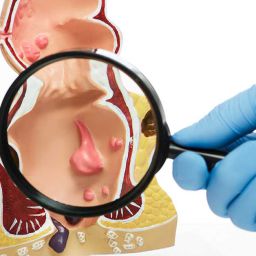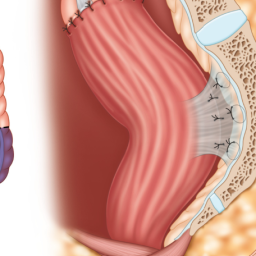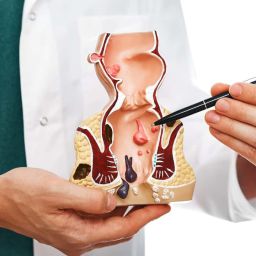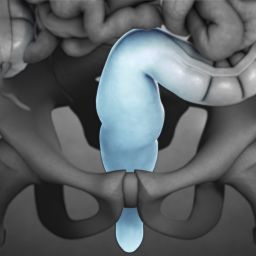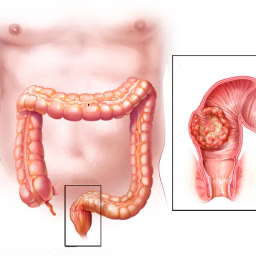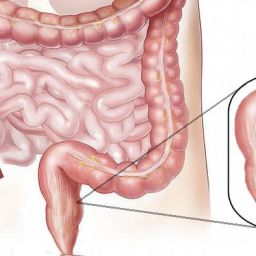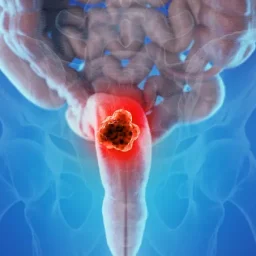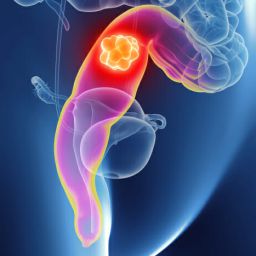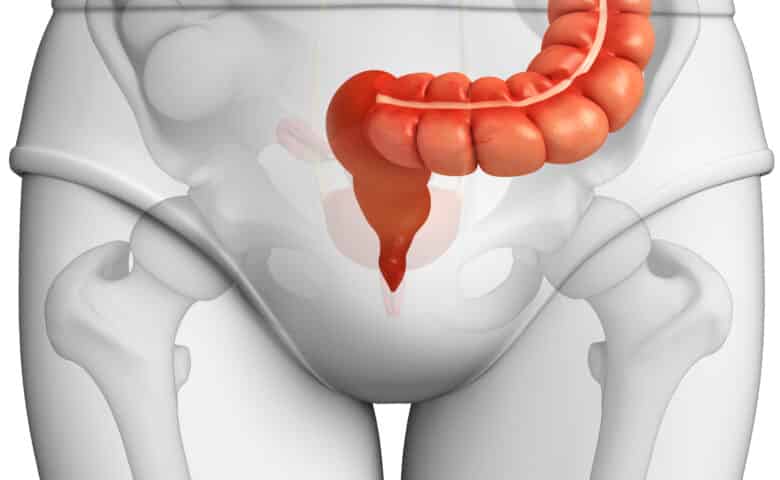
1. Common Rectal Disorders
1.1 Hemorrhoids: Hemorrhoids are swollen veins in the rectum or anus and are among the most common rectal issues. They can be internal or external and may cause itching, pain, swelling, and bleeding, especially during bowel movements.
1.2 Anal Fissures: Anal fissures are small tears in the skin around the anus, often caused by passing hard stools. They can lead to sharp pain during and after bowel movements and sometimes cause bleeding.
1.3 Rectal Prolapse: Rectal prolapse occurs when part of the rectum slips outside the anus, causing discomfort, leakage of stool, and sometimes pain. It is more common in older adults but can affect people of any age.
1.4 Rectal Infections: Rectal infections, which can be caused by bacteria, fungi, or viruses, can lead to pain, swelling, itching, or discharge. Common causes include sexually transmitted infections (STIs) or poor hygiene.
2. Natural Remedies for Hemorrhoids

2.1 Sitz Baths A sitz bath is a simple yet effective natural remedy for soothing hemorrhoid symptoms. It involves sitting in warm water for 15-20 minutes to reduce inflammation, relieve pain, and improve blood flow to the area. Adding herbs like witch hazel or Epsom salt can enhance the soothing effects.
2.2 Aloe Vera Aloe vera is known for its anti-inflammatory and healing properties. Applying fresh aloe vera gel to the affected area can help reduce swelling and irritation caused by hemorrhoids. Aloe vera also has cooling properties, which can provide immediate relief.
2.3 Witch Hazel Witch hazel is an astringent that can help shrink swollen tissues, alleviate itching, and reduce inflammation. Applying witch hazel with a cotton ball to the affected area can help soothe discomfort and reduce swelling.
2.4 Coconut Oil Coconut oil has anti-inflammatory, antibacterial, and antifungal properties, making it a great natural remedy for hemorrhoids. It can be applied directly to the affected area to reduce pain and swelling and promote healing.
2.5 Fiber-Rich Diet Increasing fiber intake through fruits, vegetables, and whole grains can help soften stools, making bowel movements easier and reducing strain. This can prevent and alleviate the symptoms of hemorrhoids.
3. Natural Remedies for Anal Fissures
3.1 Sitz Baths with Epsom Salt Sitz baths are also beneficial for anal fissures. Epsom salt added to the warm water helps reduce muscle spasms and relaxes the anal sphincter, which can ease the pain associated with fissures. The bath also cleanses the area and promotes healing.
3.2 Coconut Oil and Olive Oil Coconut oil and olive oil are both known for their healing properties. Coconut oil is especially effective in reducing pain, inflammation, and promoting tissue repair. Olive oil helps to soften the skin and prevent further irritation. Both oils can be applied directly to the fissure to promote healing.
3.3 Magnesium Supplements Magnesium is known to relax muscles and prevent constipation. Taking magnesium supplements or increasing magnesium-rich foods like leafy greens, nuts, and seeds can help soften stools and prevent strain, which is crucial for the healing of anal fissures.
3.4 Herbal Remedies Herbs like calendula and chamomile are known for their soothing and anti-inflammatory properties. They can be used as an ingredient in sitz baths or applied topically as creams or ointments to ease discomfort caused by anal fissures.
3.5 Hydration Drinking plenty of water throughout the day helps prevent constipation by keeping the stool soft. Adequate hydration is essential for the healing of anal fissures and to prevent new ones from developing.
4. Natural Remedies for Rectal Prolapse
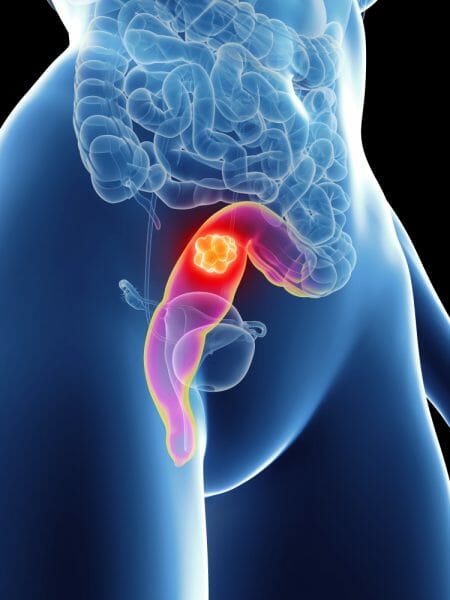
4.1 Kegel Exercises Kegel exercises, which involve tightening and releasing the pelvic floor muscles, can help improve the strength and tone of the muscles surrounding the rectum. Strengthening these muscles can aid in reducing symptoms of rectal prolapse and prevent further prolapse.
4.2 Proper Bowel Habits Avoiding straining during bowel movements is essential for managing rectal prolapse. It is important to develop a regular bathroom schedule and avoid prolonged sitting on the toilet. Using a footstool to elevate the feet while sitting can help achieve a more natural position for bowel movements.
4.3 Probiotics Taking probiotics or consuming probiotic-rich foods such as yogurt, kefir, and sauerkraut can promote a healthy gut microbiome. A balanced microbiome supports regular bowel movements and can help prevent constipation, which in turn reduces the risk of prolapse.
4.4 Pelvic Floor Physical Therapy In cases of mild rectal prolapse, pelvic floor physical therapy can be an effective treatment. A physical therapist can guide exercises to strengthen the pelvic floor muscles and prevent the prolapse from worsening.
4.5 Diet Modifications Eating a high-fiber diet and including foods rich in magnesium, such as spinach, nuts, and beans, can help keep stools soft and prevent constipation. This reduces the risk of straining, which can worsen rectal prolapse.
5. Natural Remedies for Rectal Infections
5.1 Garlic Garlic has natural antimicrobial properties and is known to fight bacterial, viral, and fungal infections. Consuming raw garlic or applying garlic oil topically may help fight infections around the rectum. Always consult a healthcare professional before using garlic topically.
5.2 Tea Tree Oil Tea tree oil is known for its antifungal and antibacterial properties. Diluting tea tree oil with a carrier oil (like coconut or olive oil) and applying it to the affected area may help treat minor infections. However, tea tree oil should never be applied directly to sensitive skin without proper dilution.
5.3 Turmeric Turmeric contains curcumin, which has strong anti-inflammatory, antioxidant, and antimicrobial properties. It can be used both topically and ingested to help reduce infection and inflammation in the rectal area. A turmeric paste can be made by mixing turmeric powder with water or coconut oil and applied to the affected area.
5.4 Probiotic-Rich Foods As with rectal prolapse, maintaining a healthy gut microbiome is essential for preventing and managing rectal infections. Probiotics from foods like yogurt, kefir, and kimchi help restore balance to gut bacteria and reduce the risk of infections caused by an imbalance in bacteria.
5.5 Sitz Baths with Herbal Additives Sitz baths can be enhanced with herbal infusions to help treat rectal infections. Adding herbs like calendula, chamomile, or oregano to the bathwater can promote healing and alleviate infection symptoms.
6. When to Seek Medical Attention
While natural remedies can provide relief for many rectal disorders, there are situations where medical intervention is necessary. If symptoms persist, worsen, or are accompanied by severe pain, bleeding, or fever, it is crucial to consult a healthcare provider. Rectal disorders that are left untreated can lead to complications such as infections, tissue damage, or the development of more severe conditions, including colorectal cancer.
Natural remedies offer a variety of ways to manage and alleviate the symptoms of common rectal disorders. From hemorrhoids to infections and prolapse, many individuals find relief through at-home treatments such as sitz baths, essential oils, and dietary adjustments. However, it is important to remember that natural remedies should be used in conjunction with professional medical care when necessary. Regular monitoring of symptoms and seeking timely medical advice can ensure the best outcomes for those experiencing rectal issues.

